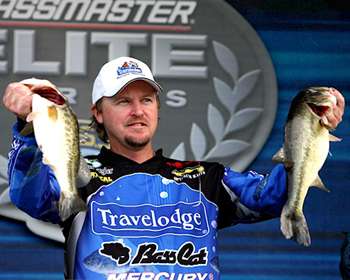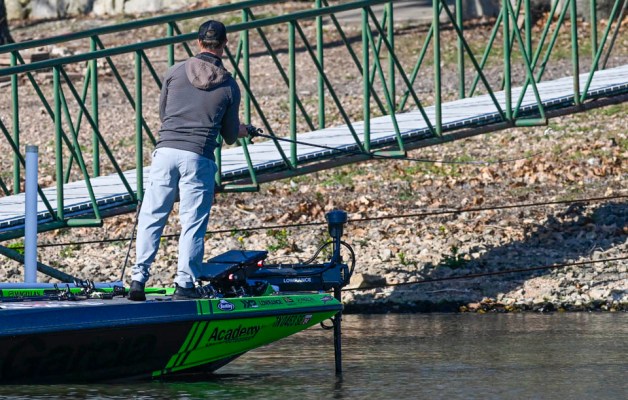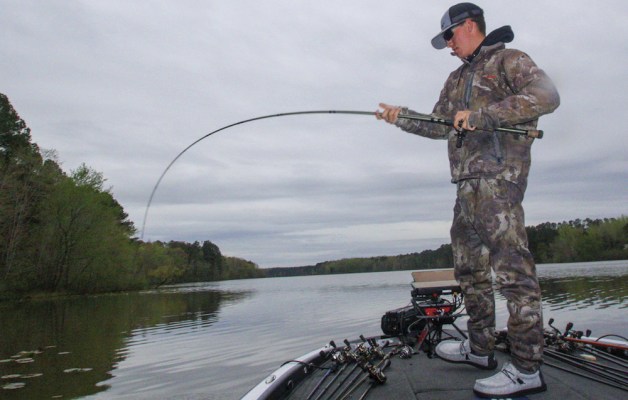
Every bass angler dreams about that "magic spot" where each cast seems to result in yet another fish caught. No matter how long you've been bass fishing, chances are that if you've found one of those spots, you can vividly remember exactly where it is located on your favorite lake.
But do you know why your "magic spot" is so good? And if you don't have an an ace-in-the-hole hot spot, what should you be looking for? Elite Series pro Mark Tyler explains that finding your own "magic spot" need not involve the supernatural. "The real key to finding that special place is that it's isolated," he says. "Anytime I can find a piece of structure that's isolated, with a lot of special characteristics that you can't find for some distance, I think I've found something special."
Tyler explains that isolated cover often produces best because it is the only area that the bass can relate to. "With pieces of cover or structure that are isolated, you've basically narrowed down the options a bass has," he points out. "For that reason, I love to find and fish isolated cover, particularly laydowns, because I'm a shallow-water flipping guy. I'm always looking for wood."
What makes a certain isolated piece of cover better than another? "Basically, it needs to have some deeper water nearby, like on a steep point," Tyler explains. "It generally has a secondary feature to it that we may not understand at first glance. There's usually something else going on under the surface of the water that really makes it unique and most often that has to do with topography.
"A lot of times you won't just look at a piece of isolated cover and say, 'Wow, this is it,' " Tyler adds. "Most often, you have to fish it for some time before it starts to show its true colors. After a little while you can start to see a trend develop where you're catching multiple fish." It is one thing to find a piece of isolated cover that produces a single keeper, but it's quite another to find a spot that continues to cough up bass after bass.
Tyler is often asked by weekend anglers about the correct amount of time to let a spot rest before fishing it again. "I'm not a believer in giving fish a break to replenish," he says. "Those special spots, sometimes all the time they need to replenish is for me to walk back to the livewell and drop a fish in. I've had many special spots where I've caught two or three keepers consecutively." When the bite finally slows for Tyler, he will then give the area a rest period ranging from an hour to two hours. "If what you've found is truly something special, the fish will continually replenish," he says. "You want to let it calm down after the initial flurry, then return and be very subtle and careful not to disturb the area with a boat wake or prop wash. "Generally fish will have repositioned on that spot within an hour or two, so you're going to want to continually return to it throughout the day."
When the action slows, Tyler picks up a few extra bites by rotating through several baits. "I'm a big believer in rotating baits anyway," he explains. "You want to give them a different look and keep things fresh in order to keep the school active." Tyler often throws a jig, soft plastic or small crankbait at the piece of cover to give remaining bass a different look before surrendering to the fact that the area may be cashed for the day.
Tyler stresses that after catching the first bass, it is critical to pay attention to boat positioning and noise. "I see so many guys that will catch a fish off a key piece of cover and then they'll tromp around the boat and let their boat bang into the cover while they're releasing the fish or putting it into the livewell," he says. "They may even fire their next cast 10 yards further down the bank without realizing what they may have just found. If one good fish thought that was a good place to set up, chances are another one did, too."




